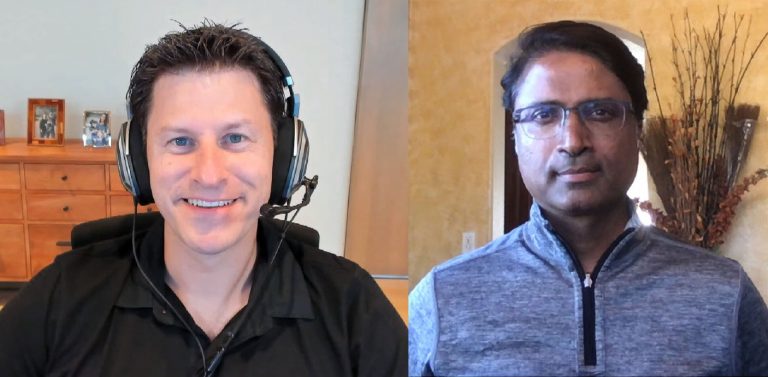

It's time to wipe the security slate clean and start over - SiliconANGLE
source link: https://siliconangle.com/2020/08/25/its-time-to-wipe-the-security-slate-clean-and-start-over-googlecloudnext/
Go to the source link to view the article. You can view the picture content, updated content and better typesetting reading experience. If the link is broken, please click the button below to view the snapshot at that time.

Thousands of internet posts, including quite a few from theCUBE, have highlighted the increased security risk created by an expanding attack surface area. In the fight to protect sensitive data, companies have gathered security tools boxes filled with solutions and established set-in-stone routines to reduce potential exposure.
Six months ago, deviating from that norm and returning to a zero-point for security solutions would have been unthinkable. Now, rethinking security from scratch is not only recommended but essential to address the ever more complex endpoint security challenge.
“Rather than trying to do a Whac-A-Mole of the surface area, what if you could take a foundational approach that actually breaks that relationship between expanded surface area [and] expanded exposure?” asked Sunil Potti (pictured, right), general manager and vice president of cloud security at Google Cloud.
Potti and Orion Hindawi (left), co-founder and chief executive officer of Tanium Inc., spoke with John Furrier, host of theCUBE, SiliconANGLE Media’s livestreaming studio, during the Google Cloud Next OnAir event. They discussed the recent announcement that Tanium and Google Cloud’s Chronicle have joined forces to create a full-stack offering for endpoint detection and response.
COVID changes the security model
Ninety percent of organizations have experienced an increase in cyberattacks since the start of the COVID-19 pandemic, according to a study conducted by Tanium. Yet, even more — 93% — admit to delaying security projects in the scramble to adapt to remote work. Now, the world understands that work may never return to normal. Instead, workers are adopting a hybrid part in-office, part at-home routine, and companies are realizing that it’s time for a security makeover.
“When we look at our customers, they’re realizing they have to re-platform their security model,” Hindawi stated. “They’d been building on a pretty creaky foundation and just adding more and more layers to it.”
Acerbating the problem, many of those existing security tools no longer work. Prior to COVID, 60 or 70% of security budgets were spent on network, according to Hindawi. But “… when everybody’s working from home, you don’t own the network,” he said. “Even the endpoint tools that assumed that devices would be behind that network perimeter now just don’t work over the internet.”
The benefit of this is that customers are realizing they have an opportunity to wipe the security slate clean and start over. “What a lot of people start realizing is they’ve been maintaining the status quo for reasons that actually have nothing to do with efficacy. They have to do with comfort,” Hindawi said. “People can’t resist change anymore. Change has come. And as a result of that, they get to choose what they would like now.”
Treat every worker as remote
The current Whac-A-Mole solution attempts to monitor the entire attack surface and knock down threats as they appear. Instead, Potti recommends an “opinionated” stack solution that provides blanket security regardless of user, device or location.
“It doesn’t matter who you are, where you’re accessing it from, what device you’re using, or what network you’re using at which location. The safety posture is still very strong,” he said.
Following this model, the Google-Tanium partnership aims to “fundamentally change the security posture of the endpoint once and for all,” acccording to Potti.
“Ultimately, [workers] have this virtualized security ring that protects and always constantly authorizes, authenticates and provides security operations capabilities,” he said. “The world needs a virtual Chromebook to really feel safe at an endpoint level. And this is the first instantiation of that core stack that can at least get enterprise to start on that journey.”
Here’s the complete video interview, part of SiliconANGLE’s and theCUBE’s independent coverage of the Google Cloud Next OnAir event:
Photo: SiliconANGLE
Since you’re here …
Show your support for our mission with our one-click subscription to our YouTube channel (below). The more subscribers we have, the more YouTube will suggest relevant enterprise and emerging technology content to you. Thanks!
Support our mission: >>>>>> SUBSCRIBE NOW >>>>>> to our YouTube channel.
… We’d also like to tell you about our mission and how you can help us fulfill it. SiliconANGLE Media Inc.’s business model is based on the intrinsic value of the content, not advertising. Unlike many online publications, we don’t have a paywall or run banner advertising, because we want to keep our journalism open, without influence or the need to chase traffic.The journalism, reporting and commentary on SiliconANGLE — along with live, unscripted video from our Silicon Valley studio and globe-trotting video teams at theCUBE — take a lot of hard work, time and money. Keeping the quality high requires the support of sponsors who are aligned with our vision of ad-free journalism content.
If you like the reporting, video interviews and other ad-free content here, please take a moment to check out a sample of the video content supported by our sponsors, tweet your support, and keep coming back to SiliconANGLE.
Recommend
About Joyk
Aggregate valuable and interesting links.
Joyk means Joy of geeK